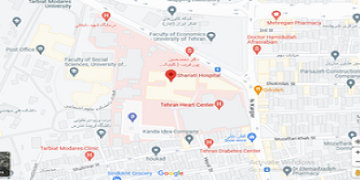Bevacizumab Inhibits Angiogenic Cytokines in Head and Neck Squamous Cell Carcinoma: From Gene to the Protein

Abstract
Background: Head and neck squamous cell carcinoma (HNSCC) is one most prevalent cancers among worldwide. Aim of this study was to evaluate possible effect of bevacizumab, a vascular endothelial growth (VEGF) factor monoclonal antibody on HNSCC cells in vitro to evaluate angiogenic profile changes. Materials and Methods: HNSCC cells were grown and after that different concentrations of bevacizumab were added in order to evaluate cytotoxic concentration using MTT assay. Then after, the cultured cells in presence of different concentration of bevacizumab were evaluated for gene expression of VEGF, matrix metalloprotease-2 (MMP-2) and MMP-9 using real time polymerase chain reaction (PCR). Moreover, the VEGF expression was evaluated by enzyme-linked immunosorbent assay (ELISA). Results: The concentration at which half cells died (IC59) was calculated 1779 µg/mL and at this concentration, VEGF protein secretion was decreased by over one fold. RT-PCR results showed that MMP2, MMP9 and VEGF decreased by 1, 0.6 and 1.1 folds, respectively. Conclusion: It seems that bevacizumab could be considered as a side therapy for patients with HNSCC due to its potential for inhibition of angiogenic related factors, but further complementary studies are necessary. Key Words: Head and neck squamous cell carcinoma, Bevacizumab, Angiogenesis, Vascular endothelial growth, Matrix metalloproteases




ارسال به دوستان